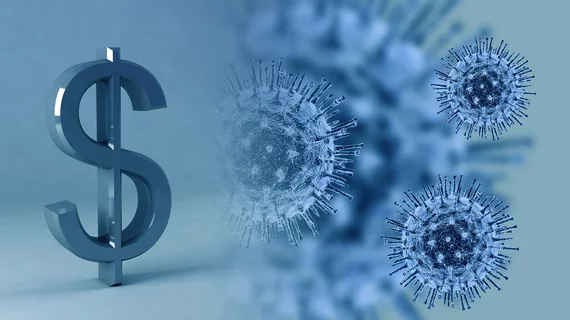American Heart Association awards $10.6M to researchers investigating the long-term cardiovascular effects of COVID-19
The American Heart Association (AHA) has awarded $10.6 million in new research grants to specialists focused on studying the long-term cardiovascular effects of COVID-19.
These “Mechanisms Underlying Cardiovascular Consequences Associated with COVID-19 and long COVID” grants will fund the efforts of eleven different research teams for three years.
“Research shows that 10% to 30% of people who have COVID-19 are experiencing lingering effects of the virus well beyond the initial 2-to-3 weeks expected recovery, a condition known as long COVID. Many of the short- and long-term complications of COVID-19 affect the heart and the brain and are contributing to an increase in cardiovascular disease in ways we do not fully understand,” AHA President Donald M. Lloyd-Jones, MD, ScM, Eileen M. Foell Professor of Heart Research and professor of preventive medicine, medicine and pediatrics at Northwestern University’s Feinberg School of Medicine in Chicago, said in a statement. “It’s critical that we learn all we can about the pathways and mechanisms in which the virus that causes COVID-19 attacks the body, and, in turn, identify and develop new treatments to help reduce further risk and improve the health of people impacted by this disease. It’s very exciting to know that these new research grants will pave the way for groundbreaking and lifesaving discoveries.”
The research projects chosen for these grants include:
- Role of SARS-CoV-2 ion channel ORF3a in COVID-19-associated thrombosis – Beth Israel Deaconess Medical Center in Boston, Massachusetts
- Systems and Network Medicine Approach to Cardiovascular Complications of SARS-CoV-2 and Their Personalized Treatment – Brigham and Women's Hospital in Boston, Massachusetts
- Prolonged Electrophysiological Effects of the Cardiac Innate Immune Response to RNA Virus – Johns Hopkins University School of Medicine in Baltimore, Maryland
- Role of TLR9 and Mitochondrial DNA in Regulating Microvascular and Immune Cell Dysfunction Post-COVID-19 – Medical College of Wisconsin in Milwaukee, Wisconsin
- Rapid Cardiovascular MRI for Quantifying Coronary Microvascular Dysfunction in COVID-19 Survivors – Northwestern University in Chicago, Illinois
- SARS-CoV2 Infection and Type I Interferon Signaling in COVID-19 and Long COVID-Associated Endothelial Cell Dysfunction – Tulane University Health Sciences Center in New Orleans, Louisiana
- The Role of Viral Fragments in Long-Term Cardiovascular Sequelae of COVID-19 – University of California, Los Angeles in Los Angeles, California
- Defective Cholesterol Homeostasis Causes Systemic Endothelial Dysfunction in Long COVID – Miller School of Medicine of the University of Miami in Miami, Florida
- Vascular Mechanisms Leading to Progression of Mild Cognitive Impairment to Dementia After COVID-19 – University of Oklahoma, Health Sciences Center in Oklahoma City, Oklahoma
- Mechanisms Underlying COVID-19 Associated Vascular Thrombosis – University of Pennsylvania in Philadelphia, Pennsylvania
- Cardiovascular Autonomic and Immune Mechanism of Post-COVID-19 Tachycardia Syndrome – Vanderbilt University Medical Center in Nashville, Tennessee.
Back in March, the American College of Cardiology (ACC) released a consensus statement summarizing what specialists have learned so far about the evaluation and management of long COVID-19. Click here to read the full document.
Related COVID-19 Content:
An updated look at what cardiologists know about heart damage among COVID-19 patients
VIDEO: Vaccines boosted survival among STEMI patients with COVID-19
COVID-19 linked to a higher risk of diabetes for at least 1 year
Risk of vaccine-related heart damage after booster shot lower than it was after first 2 doses
Telecardiology during the COVID-19 pandemic showed cardiologists another way to treat patients

